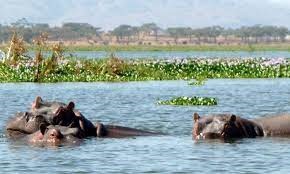The Global Lake Status Database (GLSDB) has been widely used by the climate modelling community to evaluate model predictions of changing hydroclimate, most particularly changes in the monsoon regions in response to changes in orbital forcing. One problem with this database is that it doesn’t account for uncertainties, either in the interpretation of the data sources used to infer lake levels or in the timing of transitions from low to higher lake status.
The SPECIAL group has been working on ways of expanding and improving the GLSDB as part of the work being undertaken in the PACMEDY and GC2.0 projects. As part of this effort, Gijs de Cort came to Reading as a visiting fellow for six months in 2018 funded by Research Foundation Flanders (FWO) to work on ways of including uncertainty in the database. The culmination of this collaboration is a paper, led by Gijs and accepted this week by Quaternary Science Reviews, entitled “An uncertainty-focused database approach to extract spatiotemporal trends from qualitative and discontinuous lake-status histories”. In this paper, we describe the way to construct a relational database that includes information on the uncertainties in both chronology and the interpretation of palaeoenvironmental data, using 67 lakes from eastern and southern Africa as test cases.
The paper also proposes a new probabilistic analytical framework that includes these uncertainties when reconstructing synoptic, integrated environmental signals by first using a Monte Carlo iterative sampling of individual lake histories to produce a suite of scenarios for each lake, and then using empirical orthogonal functions to extract the dominant patterns of lake status variability from this suite of scenarios. While the QSR paper lays out a framework for new ways of analysing lake status data, there is clearly some way to go to translate this work into a new global lake data set documenting uncertainties. However, such a database will allow us to exploit the lake records for model evaluation with a much higher degree of confidence.

